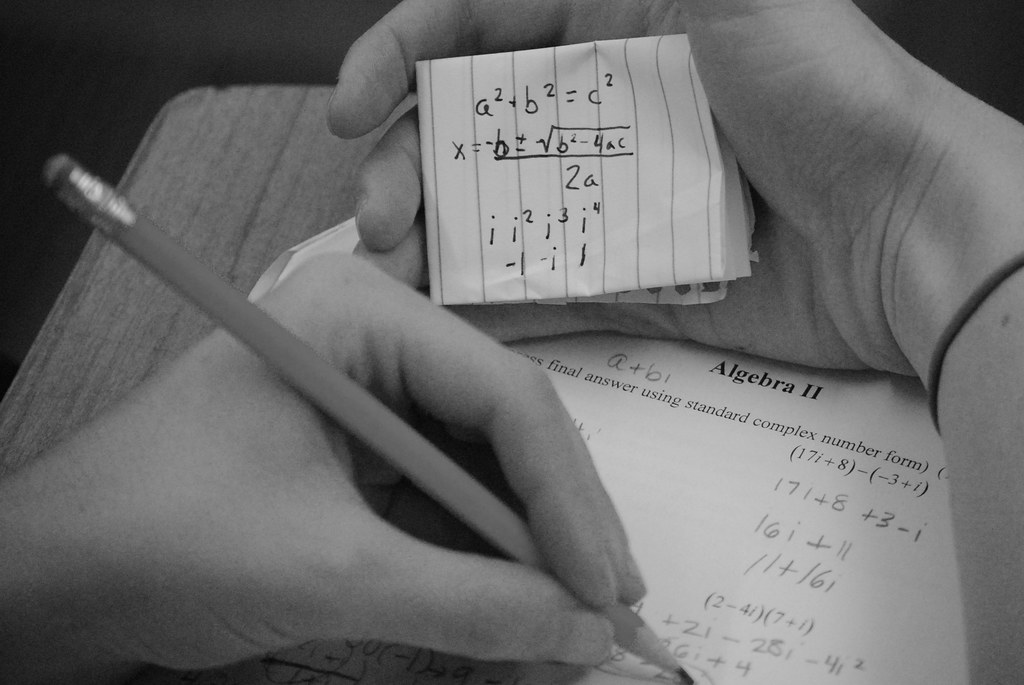
Survey: 37% of Students Say Their Schools Didn’t Try to Stop Cheating
This publication, The Cheat Sheet, offers lots of interesting tales of cheating. They seem to be UK based as evidenced by stories like this one:
Cheating Cases Almost Double at Oxford
Oh, it only increased from 35 to 77 cases, but still… Oxford!!!
And another one from this publication…
School With 27,000 Students Clocks 10,000 Hits to Cheating Websites. In One Month.
And that’s the story, which got me thinking about the role of tests. Consider this quote:
“In just one month, Charles Darwin University recorded almost 10,000 hits on the (cheating) sites. … Maybe that 10,000 number indicates that the students seeking illicit and improper help are highly motivated to find it – pinging several websites until they find one that’s unblocked. If that’s the case, the persistence to find cheating providers does cut against the idea that cheating is born of confusion or lack of clarity regarding what is or is not permitted.”
Similar stories exist for USA as in this report. “Ninety-three percent of instructors think students are more likely to cheat online than in person, according to a survey conducted in May by the publishing and digital education company Wiley. ” Wow!
Not wanting to fail or conversely wanting to seem to excel would seem to be the motivation to cheat. But how does that explain this story courtesy of Matt Levine:
“Over multiple years, a significant number of Ernst & Young audit professionals cheated on these (required Ethics) exams by using answer keys and sharing them with their colleagues. From 2017 to 2021, 49 EY audit professionals sent and/or received answer keys to CPA ethics exams.”
They were auditors. It was an open book exam. Yet they cheated. The test did not spur the cheating; the desire to save time did. Now this cheating is not prevalent on the accounting exam. Why? Again, Matt Levine:
“It is easy to cheat on the ethics exams and hard to cheat on the accounting exams. The accounting exams are set up to detect and prevent cheating; the ethics exams are not. “
Is cheating similar to what George Bernard Shaw said about marriage:
“Marriage is popular because it combines the maximum of temptation with the maximum of opportunity.”
The temptation in this case is to skip the work and use your time in another pursuit. Or it’s to gain a result you desire that hides behind the obstacle of an assessment. Are the tests as obstacles to acquisition of desires to blame for cheating? Or is it as Thomas Aquinas stated that ‘Man is be nature concupiscent’, a slave to desires to have things easier?
Greg Cizek who has written insightfully about cheating noted here that, “Critics of accountability view cheating as the natural, and not so reprehensible, result of placing undue emphasis on the results of a single test. Some even view cheating as a kind of civil disobedience.“
What do you think stimulates cheating on tests?
Two things:
Firstly, I was struck by this piece in relation to a paper due to be presented at the BERA (British Educational Research Association) conference next month: ‘We are not cheating. We are helping each other out:’ Cheating, Deviance and Resistance in Egyptian Secondary Education, Mr Hany Zayed, University of Illinois at Urbana Champaign, Urbana, USA. The abstract for the paper says: “Cheating has long been an obstinate feature of Egyptian secondary assessment. Jeopardizing ideals of meritocracy and equality of opportunity, it has consistently been vilified, pathologized and criminalized by the state, which sought to combat it recently using digital technologies. Yet, while promising a tighter grip on assessment, those technologies afforded a new modality of cheating with a scale and speed unprecedented in Egyptian educational history. This research examines the social phenomenon of digital cheating at a time of assessment fetishization, post-revolutionary fervor, state-led educational digitalization, and pandemic exceptionalism. Using in-depth interviews with educational communities, oral history interviews with government officials, and novel qualitative social media research using WhatsApp, Facebook, Telegram and YouTube to observe cheating in situ, this research asks to what extent digital cheating can be conceptualized not as deviance but as an act of resistance.” Interesting stuff! I don’t have any answers, of course, but am fascinated by the cultural, societal, and psychological factors at play here.
Sec only, this focuses on conscious or active cheating, but what about the student who unwittingly re-uses/paraphrases passages of their own material, perhaps assessed in a previous module which addressed a closely-related topic area and will inevitably have overlapping sources, for example, in an assessment and is penalised for perceived plagiarism? Is that really cheating?!?
The notion of cheating on tests has a fascinating history. See this link https://www.k12academics.com/Academic%20Dishonesty/history-academic-dishonesty
I love your last line and question, Marianne: “Is that really cheating?” The link speaks to ‘academic dishonesty’ Is that a euphemism? We want to know what you know in many tests but… if we adopt the stance of no tests but for learning in K-12 what effect would that have?
Fascinating link, T.J., thank you for sharing.